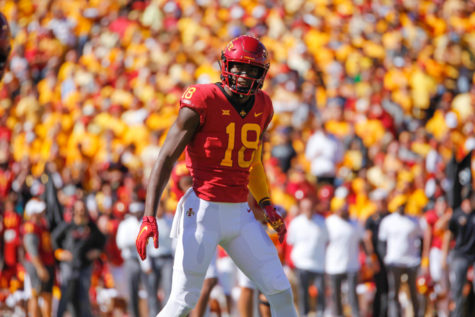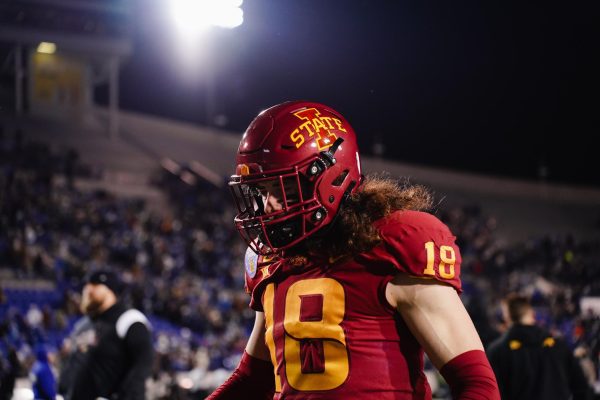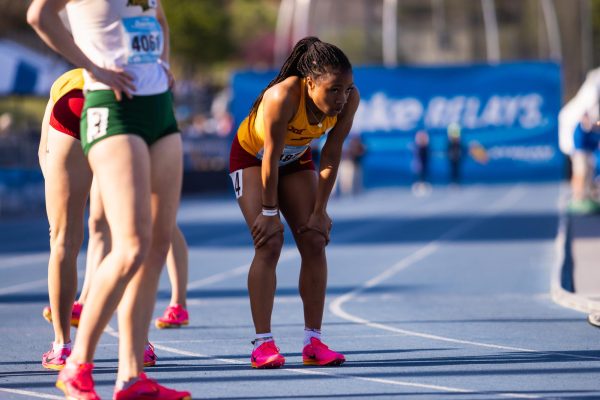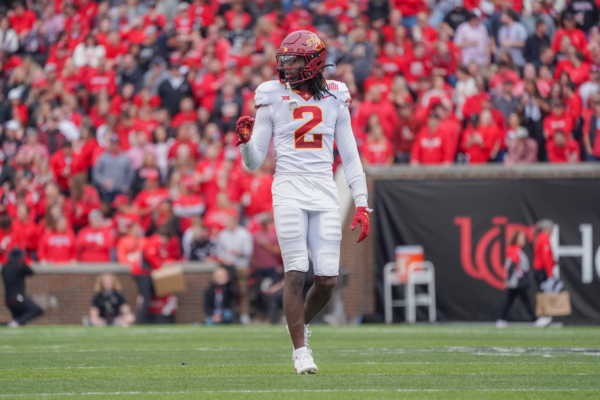ISU athletic director reacts to proposal
July 10, 2001
The Iowa State athletic program is starting to assess how they might be affected by a proposal released by a committee from the Knight Foundation, a private organization.
The foundation’s commission on intercollegiate athletics suggested several proposals for the NCAA to discuss.
The proposals range from reductions in Division I-A football scholarships and compensation for coaches, to the commercialization of collegiate athletics.
One of the more prominent issues concerns ineligibility for postseason events if a team does not graduate 50 percent or more of its participants.
While the proposal has only been suggested, Iowa State athletic director Bruce Van De Velde is not in agreement with the foundation.
“I’m not sure the requirement that you have a 50 percent graduation rate for post-season competition is the way to improve graduation rates,” he said. “I certainly would be supportive of any legislation that would try to improve graduation rates. I’m just not sure that that single suggestion or method is the correct answer.”
If the commission’s plan were in effect today, some schools would have been kept out of post-season tournaments this past year.
However, the ISU athletic director says that would not be a problem for Cyclone programs.
“For the most part, we’ve done a fairly good job of graduating our student-athletes,” Van De Velde said. “If you look at the make-up of our student-athletes and compare them to the [rest] of the student body, the academic profile compares quite favorably. I think it’s a credit to the people that are here at Iowa State [and] the student-athletes that we’re bringing here.”
One fear Van De Velde has concerning this proposal is that some people might miss out on an opportunity to attend a university such as Iowa State.
“I would hate to see a college become elitist, where we eliminate a lot of people that have the opportunity to better themselves and get an education,” he said. “Athletics has been one avenue where people can do that.”
Van De Velde said graduation is a goal people strive for, but that it does not have to be the main focus of their time at college.
“I’ve seen young people grow and become better people regardless of whether they graduated or not,” he said. “I think that there’s value in an education regardless of whether you graduate or not.”
The committee, which includes several university presidents, reconvened after addressing issues similar to these in the 1990s.
While football and basketball are lucrative in most programs, Van De Velde said he was under the impression that the commission sent this message to all sports.
“We need to be sensitive to graduation rates for all of our sports, so I would think that whatever would be good for them would be good for all the other sports as well,” he said. “I think they focused on those two sports because that’s where a lot of our revenue comes in.”
Attempts were made to reach several Iowa State coaches. While some did not know the specifics of the report, they said that Iowa State does hold a high regard for education in its athletic programs.
As for the future, Van De Velde said the program could always look to improve its academic endeavors.
One resource he said should be looked to more often are the athletes themselves.
“Sometimes we don’t listen to the student-athletes and I think that their voice should be heard too,” he said. “I think administrators will find out that the student-athletes can tell you that we do a pretty good job already of regulating our academics.”
















